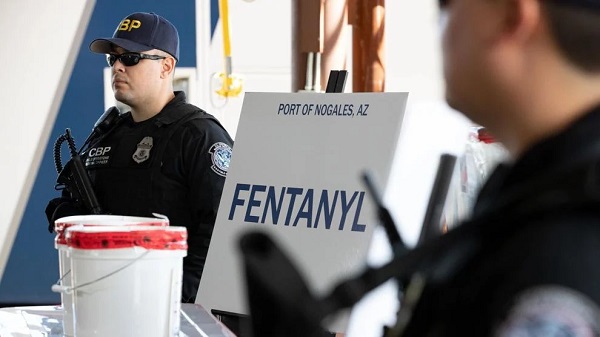Education
Schools shouldn’t sacrifice student performance to vague notions of ‘equity’

From the Fraser Institute
According to a new study published by the Fraser Institute, if Canada wants to remain competitive with emerging economies around the world, we must increase our math, science and reading scores—and not simply pursue high levels of “equity and inclusion” as the primary goal for our schools.
Indeed, highly equitable and inclusive schools—with declining PISA scores, as is currently the case in Canada—do a disservice to students and society at large.
Why? Because higher test scores translate into greater “knowledge capital”—that is, the full body of knowledge available to an economy—and boost economic growth (and, incidentally, the tax revenues that fund our schools).
Indeed, the goal should be equitable access to a quality education. And the most realistic and meaningful way to measure student progress is through PISA tests, which every three years assess the performance of 15-year-olds worldwide in core subjects of math, science and reading rather than the limited curriculum objectives used in provincial testing, which can only show progress or decline within individual school systems. In today’s world, where competition is truly global, we must know how our students and schools perform compared to their peers in other countries, especially the “Asian Tigers” of Hong Kong, Korea, Singapore and Tiawan whose rapidly growing economies have been driven by rising PISA scores.
Obviously, countries with higher test scores can teach other countries how to improve—although there are limits and some traps here. Attempting to cut and paste Singapore’s or Korea’s much more meritocratic systems of highly competitive student assessment and selection would be impractical and impolitic in Canada. Even so, policymakers should consider reinstating more meaningful meritocratic norms in Canadian schools to encourage and recognize academic achievement. Nothing succeeds like success, except recognized and rewarded success.
Closer to home, other provinces could benefit from considering why Quebec is such a stellar performer in math and why Alberta has the highest overall PISA test score average of all provinces.
But fair warning, recent attempts at school improvement in Canada show that top-down one-size-fits-all changes—including extending compulsory attendance, reducing average class size and tinkering with course content—have had little positive effect on student performance, although they may please teacher unions. If policymakers want to achieve more equitable success for more students, they should introduce more flexibility, school autonomy and choice into our top-heavy centrally regulated school systems. In this respect it may be no accident that the three highest performing, mid-spending provincial K-12 education systems (Alberta, Quebec and Ontario) offer relatively high levels of school choice, although of quite different kinds.
Equity and inclusion are noble goals, but they shouldn’t interfere with student progress. There’s too much at stake, for students and the country.
Author:
Alberta
Schools should go back to basics to mitigate effects of AI

From the Fraser Institute
Odds are, you can’t tell whether this sentence was written by AI. Schools across Canada face the same problem. And happily, some are finding simple solutions.
Manitoba’s Division Scolaire Franco-Manitobaine recently issued new guidelines for teachers, to only assign optional homework and reading in grades Kindergarten to six, and limit homework in grades seven to 12. The reason? The proliferation of generative artificial intelligence (AI) chatbots such as ChatGPT make it very difficult for teachers, juggling a heavy workload, to discern genuine student work from AI-generated text. In fact, according to Division superintendent Alain Laberge, “Most of the [after-school assignment] submissions, we find, are coming from AI, to be quite honest.”
This problem isn’t limited to Manitoba, of course.
Two provincial doors down, in Alberta, new data analysis revealed that high school report card grades are rising while scores on provincewide assessments are not—particularly since 2022, the year ChatGPT was released. Report cards account for take-home work, while standardized tests are written in person, in the presence of teaching staff.
Specifically, from 2016 to 2019, the average standardized test score in Alberta across a range of subjects was 64 while the report card grade was 73.3—or 9.3 percentage points higher). From 2022 and 2024, the gap increased to 12.5 percentage points. (Data for 2020 and 2021 are unavailable due to COVID school closures.)
In lieu of take-home work, the Division Scolaire Franco-Manitobaine recommends nightly reading for students, which is a great idea. Having students read nightly doesn’t cost schools a dime but it’s strongly associated with improving academic outcomes.
According to a Programme for International Student Assessment (PISA) analysis of 174,000 student scores across 32 countries, the connection between daily reading and literacy was “moderately strong and meaningful,” and reading engagement affects reading achievement more than the socioeconomic status, gender or family structure of students.
All of this points to an undeniable shift in education—that is, teachers are losing a once-valuable tool (homework) and shifting more work back into the classroom. And while new technologies will continue to change the education landscape in heretofore unknown ways, one time-tested winning strategy is to go back to basics.
And some of “the basics” have slipped rapidly away. Some college students in elite universities arrive on campus never having read an entire book. Many university professors bemoan the newfound inability of students to write essays or deconstruct basic story components. Canada’s average PISA scores—a test of 15-year-olds in math, reading and science—have plummeted. In math, student test scores have dropped 35 points—the PISA equivalent of nearly two years of lost learning—in the last two decades. In reading, students have fallen about one year behind while science scores dropped moderately.
The decline in Canadian student achievement predates the widespread access of generative AI, but AI complicates the problem. Again, the solution needn’t be costly or complicated. There’s a reason why many tech CEOs famously send their children to screen-free schools. If technology is too tempting, in or outside of class, students should write with a pencil and paper. If ChatGPT is too hard to detect (and we know it is, because even AI often can’t accurately detect AI), in-class essays and assignments make sense.
And crucially, standardized tests provide the most reliable equitable measure of student progress, and if properly monitored, they’re AI-proof. Yet standardized testing is on the wane in Canada, thanks to long-standing attacks from teacher unions and other opponents, and despite broad support from parents. Now more than ever, parents and educators require reliable data to access the ability of students. Standardized testing varies widely among the provinces, but parents in every province should demand a strong standardized testing regime.
AI may be here to stay and it may play a large role in the future of education. But if schools deprive students of the ability to read books, structure clear sentences, correspond organically with other humans and complete their own work, they will do students no favours. The best way to ensure kids are “future ready”—to borrow a phrase oft-used to justify seesawing educational tech trends—is to school them in the basics.
Business
Why Does Canada “Lead” the World in Funding Racist Indoctrination?
-

 Censorship Industrial Complex1 day ago
Censorship Industrial Complex1 day agoDeath by a thousand clicks – government censorship of Canada’s internet
-

 Alberta2 days ago
Alberta2 days agoSchools should go back to basics to mitigate effects of AI
-

 International2 days ago
International2 days agoAt Least 15 Killed In Shooting Targeting Jewish Community At Australia’s Bondi Beach, Police Say
-

 Daily Caller1 day ago
Daily Caller1 day agoChinese Billionaire Tried To Build US-Born Baby Empire As Overseas Elites Turn To American Surrogates
-

 Great Reset2 days ago
Great Reset2 days agoViral TikTok video shows 7-year-old cuddling great-grandfather before he’s euthanized
-

 Business1 day ago
Business1 day agoMajor tax changes in 2026: Report
-

 International1 day ago
International1 day agoRussia Now Open To Ukraine Joining EU, Officials Briefed On Peace Deal Say
-

 Crime23 hours ago
Crime23 hours agoTrump designates fentanyl a ‘weapon of mass destruction’









